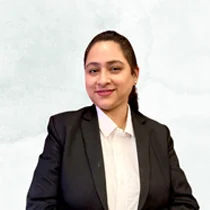Standard Business Sponsorship Visa
The Standard Business Sponsorship (SBS) is a component of the Employer Sponsored Visa program in Australia. It allows Australian businesses to become approved sponsors and nominate skilled workers from overseas to work in their organization on a temporary or permanent basis. The SBS enables businesses to fill skill shortages in their workforce by hiring foreign workers.
Have Questions?
We're Just a Click Away!
Key points about the Standard Business Sponsorship (SBS)

- Sponsorship Approval: Australian businesses seeking to employ skilled foreign workers must first apply for and obtain Standard Business Sponsorship (SBS) approval. This involves demonstrating that the business is lawfully operating, has a genuine need for skilled workers, and will comply with sponsorship obligations.
- Temporary and Permanent Visas: The SBS can be used to sponsor foreign workers for both temporary and permanent visas. Temporary visas may include the Temporary Skill Shortage (TSS) Visa (Subclass 482), while permanent visas may include the Employer Nomination Scheme (ENS) Visa (Subclass 186).
- Nomination of Occupations: Once approved as an SBS, the business can nominate specific occupations to fill their skill gaps. The nominated occupation must be on the relevant skilled occupation list, and the business must justify the need for the position.
- Labour Market Testing: In most cases, businesses need to demonstrate that they have tested the local labour market by advertising the position before nominating a foreign worker. This is to ensure that qualified Australians are given the opportunity to apply for the job.
- Sponsorship Obligations: Approved SBS holders have specific obligations, including ensuring that the sponsored worker’s employment conditions meet Australian standards, maintaining training obligations, and cooperating with immigration compliance efforts.
- TSS Visa Streams: The Temporary Skill Shortage (TSS) Visa (Subclass 482) has three streams: Short-Term, Medium-Term, and Labour Agreement. Each stream has different validity periods and eligibility criteria.
- Transition to Permanent Residency: Some visa holders sponsored through SBS may have pathways to transition to permanent residency, such as the Employer Nomination Scheme (ENS) Visa (Subclass 186) or the Regional Sponsored Migration Scheme (RSMS) Visa (Subclass 187).
- Application Process: The SBS application process involves submitting an online application, providing required documentation, and demonstrating that the business meets the relevant criteria. The application is assessed by the Department of Home Affairs.
Note: It’s important to note that immigration policies and visa requirements can change over time. For the most current and accurate information about the Standard Business Sponsorship (SBS) and related visa programs, I recommend consulting our qualified immigration expert Mr. Manmohan Makkar
Dedicated Team
Great Support
Government Certified
Here to Assist You
Have questions? Get in touch with us for expert migration advice.

Expert Team Members
Our Dedicated Team At Your Service

Sumeet Vinod Kumar
Founder / Director

Urmila Sumeet Kumar
Co-Founder / Director

Manmohan Makkar
Immigration Lawyer / Director

Anisha Makkar
Operation Manager, India

Dhara Amit Shah
Business Development Manager

Vinaya Vineet Pasarnikar
Senior Case Manager

Gitanjali Bahuguna
Case Manager

Beena Bhola
Case Manager

Karunjit Thind
Case Manager

Rupali Kumari
Case Manager
Frequently Asked Questions
At Auzworld Migration, We’re a team of Registered Migration Agents & Immigration Lawyers.
Australia offers a variety of visas to cater to different needs. The primary categories include:
- Tourist visas: For short-term visits.
- Student visas: For international students.
- Work visas: For skilled workers and temporary workers.
- Family visas: For partners, parents, and children of Australian citizens or permanent residents.
- Migrant visas: For permanent residency.
The specific documents required vary depending on the visa type. However, common documents include:
- Valid passport
- Proof of financial support
- Health examinations
- Police certificates
- Proof of education or employment
- Relationship evidence (for partner visas)
Processing times can vary significantly depending on the visa type and individual circumstances. It’s essential to check the estimated processing times on the Department of Home Affairs website. Factors such as the time of year, lodgement location, and the complexity of the application can also influence processing times.
Yes, most student visa holders are allowed to work part-time during their studies and full-time during designated breaks. However, there are limitations on the number of hours you can work.
The requirements for permanent residency vary depending on the visa pathway chosen. Common pathways include skilled migration, family sponsorship, and employer sponsorship. Each pathway has its own eligibility criteria, including age, skills, work experience, and English language proficiency.





